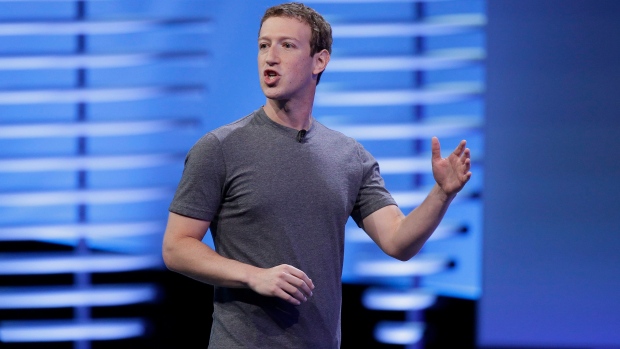Mar 19, 2018
Facebook's Zuckerberg under pressure over data breach
, Bloomberg News

Government officials in the U.S. and Europe are demanding answers from Facebook Inc. after reports that Cambridge Analytica, the advertising-data firm that helped Donald Trump win the U.S. presidency, retained information on tens of millions of Facebook users without their consent.
Over the weekend, entreaties for the social-media giant to take responsibility evolved into calls for Chief Executive Officer Mark Zuckerberg to appear in front of lawmakers. Facebook has already testified about how its platform was used by Russian propagandists ahead of the 2016 election, but the company never put Zuckerberg himself in the spotlight with government leaders. The pressure may also foreshadow tougher regulation for the social network.
“It’s clear these platforms can’t police themselves,” Senator Amy Klobuchar, a Minnesota Democrat, said Saturday on Twitter. “They say ‘trust us.’ Mark Zuckerberg needs to testify before Senate Judiciary.” Massachusetts Attorney General Maura Healey also separately launched an investigation.
The company on Friday said that a professor used Facebook’s log-in tools to get people to sign up for what he claimed was a personality-analysis app he had designed for academic purposes. To take the quiz, 270,000 people gave the app permission to access data via Facebook on themselves and their friends, exposing a network of 50 million people, according to the New York Times. That kind of access was allowed per Facebook’s rules at the time. Afterward, the professor violated Facebook’s terms when he passed along that data to Cambridge Analytica.
Shares in Facebook were down 2.2 per cent during early trading at 5:00 a.m. in New York.
Facebook found out about the breach in 2015, shut down the professor’s access and asked Cambridge Analytica to certify that it had deleted the user data. Yet the social network on Friday suspended Cambridge from its system, explaining that it had learned the information wasn’t erased. Cambridge, originally funded by conservative political donor Robert Mercer, on Saturday denied that it still had access to the user data, and said it was working with Facebook on a solution.
A researcher who worked with the professor on the app is now currently an employee at Facebook, which is reviewing whether he knew about the data leak.
The denials and refutations did little to ease the criticism. Damian Collins, a British lawmaker, said Sunday that Zuckerberg or another senior executive should appear in front of his committee because previous witnesses have avoided difficult questions, creating “a false reassurance that Facebook’s stated policies are always robust and effectively policed.’’ He added in an interview on British radio Monday that Zuckerberg should "stop hiding behind his Facebook page and actually come out and answer questions about his company.”
The next few weeks represent a critical time for Facebook to reassure users and regulators about its content standards and platform security, to prevent rules that could impact its main advertising business, according to Daniel Ives, an analyst at GBH Insights.
“Changes to their business model around advertising and news feeds/content could be in store over the next 12 to 18 months,” Ives wrote in a note to investors.
Facebook, meanwhile, has sought to explain that the mishandling of user data was out of its hands and doesn’t constitute a “breach” – a definition that would require the company to alert users about whether their information was taken, per U.S. Federal Trade Commission rules.
Menlo Park, California-based Facebook no longer allows app developers to ask for access to data on users’ friends. But the improper handling of the data raises systemic questions about how much companies can be trusted to protect personal information, said Nuala O’Connor, president and CEO of the Center for Democracy & Technology.
“While the misuse of data is not new, what we now see is how seemingly insignificant information about individuals can be used to decide what information they see and influence viewpoints in profound ways,” O’Connor said in a statement. “Communications technologies have become an essential part of our daily lives, but if we are unable to have control of our data, these technologies control us. For our democracy to thrive, this cannot continue.”




